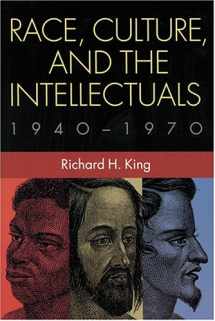
Race, Culture, and the Intellectuals, 1940–1970
Book details
Summary
Description
Toward the end of World War II, scholars and writers reeling from the politics of racism stressed the unity of humankind, but by the early 1970s, dominant voices proclaimed ongoing diversity―sometimes irreconcilable antagonism―among human cultures. To study this transition from universalism to cultural particularism, Richard King focuses on the arguments of major thinkers, movements, and traditions of thought, attempting to construct a map of the ideological positions that were staked out and an intellectual history of this transition.
King's range is international, from North American and European concerns, to the Negritude movement of Africa and the Caribbean, to arguments raised at the 1955 Bandung Conference in Indonesia. And his comparisons embrace a diversity of subjects, such as anti-Semitism and anti-black racism, and political, psychological, and sociological models of oppression, accommodation, and resistance. This study explores the intellectual roots of current debates over such topics as affirmative action, multiculturalism, cultural relativism, and humanism. Among thinkers who receive sustained attention are Theodor Adorno, Hannah Arendt, James Baldwin, Amiri Baraka, Bruno Bettelheim, Harold Cruse, Stanley Elkins, Ralph Ellison, Frantz Fanon, E. Franklin Frazier, Raul Hilberg, Max Horkheimer, C. L. R. James, Albert Memmi, Albert Murray, Gunnar Myrdal, Jean-Paul Sartre, and Richard Wright.


We would LOVE it if you could help us and other readers by reviewing the book
Book review



